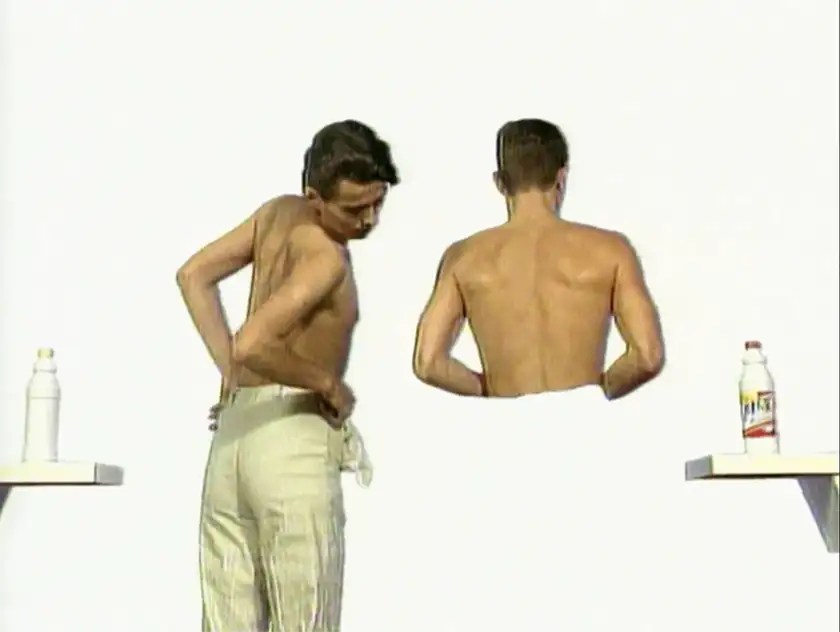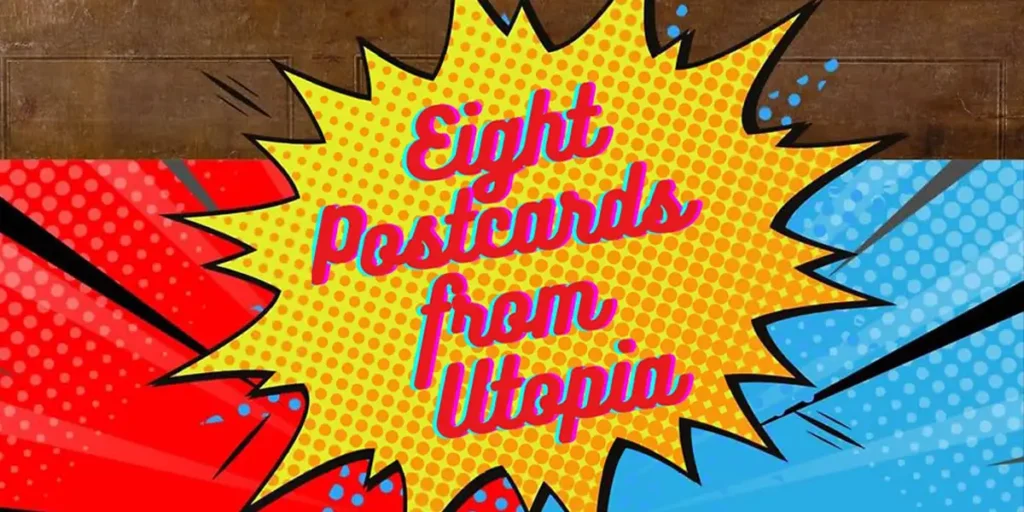Radu Jude’s Eight Postcards From Utopia is a collection of adverts from post-socialist Romania, and a revealing documentary about our relationship with consumer culture.
Directors: Christian Ferencz-Flatz & Radu Jude
Original Title: Opt Ilustrate Din Lumea Ideală
Genre: Documentary, Found Footage
Run Time: 71′
BFI London Film Festival Screening: October 10-12, 2024
U.S. Release Date: TBA
U.K. Release Date: TBA
The conflict that dominated the mid-to-late 20th century was capitalism versus communism. It was an ideological battle that formed the Cold War, an elongated period of tension between the US and USSR that occasionally spilt out into regional conflicts (and nearly spilt out into all-out nuclear war). Key to the USSR at this time was its pact with other Communist countries in Eastern Europe like Romania, which was under a brutal and bloody regime led by dictator Nicolae Ceaușescu. However, that ended in 1989 when he was deposed and executed. By then, communism was on the decline across Eastern Europe. Capitalism was taking over in its place, with Romania entering a pivotal transition period.
It falls to one of the country’s most known and prolific directors to document this change. Radu Jude’s biting, often bizarre films have acted as social critiques of Romania and culture at large, from Bad Luck Banging or Loony Porn (which won the Golden Bear in 2021) to Do Not Expect Too Much from the End of the World. That film saw him intersperse scenes from the Ceaușescu-era film Angela Goes On. Now, Jude focuses on the aftermath of that regime in his new project, Eight Postcards From Utopia, a found-footage documentary assembled completely from post-socialist Romanian commercials.
That is not an exaggeration. The film really is just a series of adverts divided into eight episodes and an epilogue, with no comment or voiceover. For instance, the introductory chapter examines the entire history of Romania from Roman times to the new future. Another is on technology, with labs and scientists used to sell simple products like detergent or hot dogs. ‘Magique Mirage’ highlights the fantastical tricks used to sell products, which paints advertising as a magic trick in itself. And ‘Masculine Feminine’ (a reference to Jean-Luc Godard’s 1966 film of vignettes) goes through the difference between marketing to men and women, revealing a host of leering, male gaze-centric ads.
With Radu Jude, you know you’re not getting an easily digestible film. Here, he is attempting to distil the entire breadth and depth of consumer culture and advertising through a specific country. The results are outdated, sometimes humorous and often ludicrous, with Jude highlighting the absurdity. One of them encourages us to buy shares in Dracula Park, and another spouts names of meats like a shopping list. It is an unpredictable mix buoyed by the gigantic archive that the film draws from.

The quality of these commercials varies, and not just from the glossy to the low-budget productions. Some are on hazy VHS. Others have no sound at all. It would make the film unpolished if it doesn’t end up being by design (a chapter named ‘The Anatomy of Consumption’ cuts the sound entirely and appeals to our other senses).
Besides, Eight Postcards from Utopia is not necessarily about the content but the sociological context. The film’s co-director is Christian Ferencz-Flatz, a philosopher from Bucharest who has done work on post-socialist advertising. It is important to note his help in dissecting these ads, grouping them with specific motifs: money, technology, magic, and the spectrum of life and death. These are used to demonstrate how Romania has viewed its history through its new capitalist philosophy. The first mention of Ceaușescu in this film is in a mobile phone commercial with the tagline, “First you earned your right to speak freely – now you speak for free.” A mass privatisation programme is advertised with the line “what belongs to all belongs to no one.” These are signs of the direction the country is moving away from.
There is always an extra meaning that Jude and Ferencz-Flatz give to these seemingly basic adverts and products, something reinforced by Jude’s regular editor Cătălin Cristuțiu. In an ironic twist, this complete display of modern capitalism is depicted through montage editing, a form developed within the Communist sphere of Soviet Russia. It turns this into a random, hectic, but strangely beguiling barrage of selling, akin to randomly flicking through TV channels.
There is no corner that Radu Jude doesn’t cover in Eight Postcards from Utopia, with his acerbic touch shining through in a resourceful and head-spinning experimental film. His recent work has wondered how we got to this strange point in our modern world. Here, he develops a form of literal commercial cinema that reveals Romania’s recent history whilst simultaneously delving into our collective relationship with consumer culture. These Romanian adverts for local products and brands (I counted at least four Pepsi ads) all possess the same purpose and effect as they do in the West. It is aspirational and materialist capitalism, selling you a dream of wealth or convenience or luxury. Capitalism offers us a utopia, and we’ve all bought into it.
Eight Postcards From Utopia will be screened at the BFI London Film Festival on October 10-12, 2024. Read our list of 30 movies to watch at the 2024 BFI London Film Festival!

